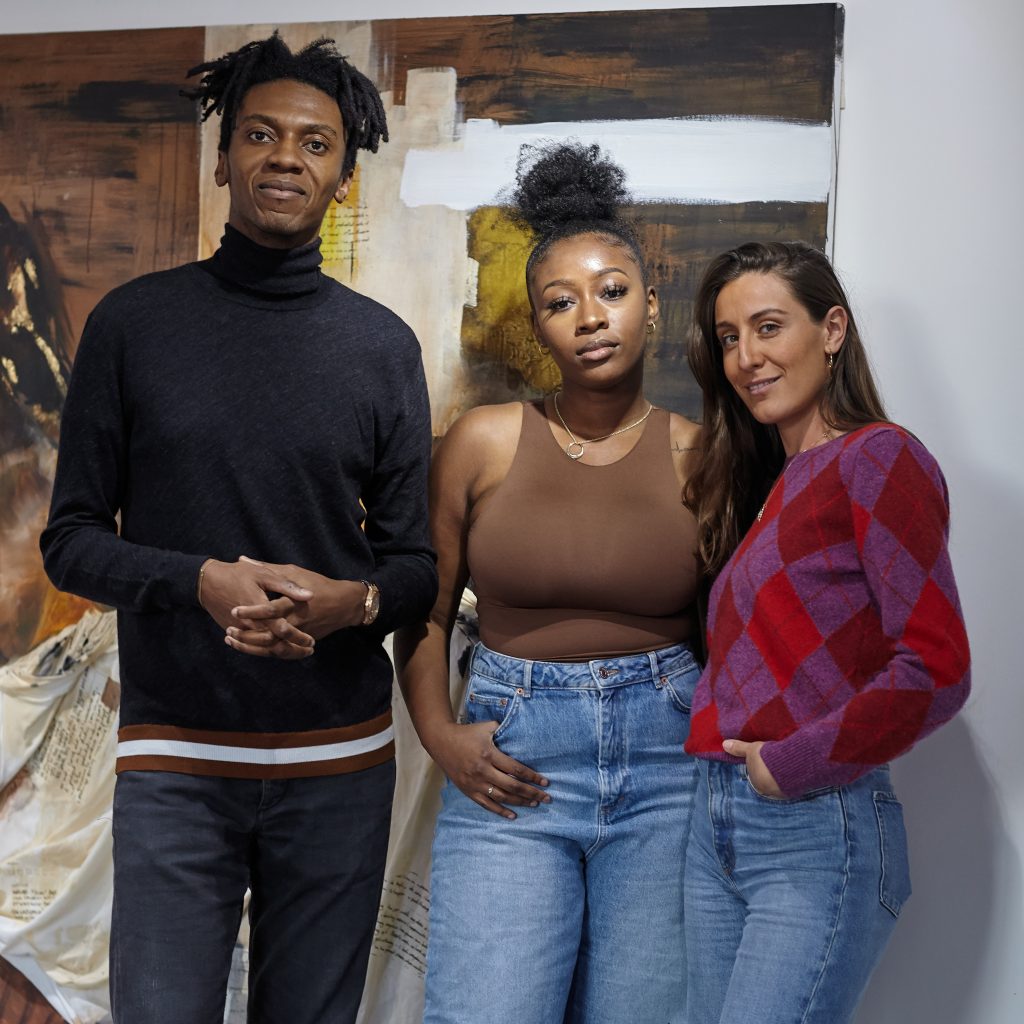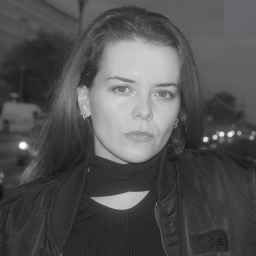London—one of the priciest cities in the world—is a difficult place to live as an artist. But a semi-nomadic organization in the UK capital wants to take some of the burden off. The nonprofit V.O. Curations is taking advantage of vacant spaces to make studios more affordable, especially for young, emerging, or underrepresented talents.
Since 2018, V.O. Curations has been sprucing up and renting out formerly unoccupied properties around the UK capital. Now, they’re taking over a large commercial building in the blue-chip art center of Mayfair with an expanded curatorial mandate. Beside launching additional studios, V.O. will inaugurate a project space and a gallery informed by its artistic and curatorial residency programs.
Founders Nnamdi Obiekwe and Zina Vieille, both in their late 20s, have been partnering with real estate developers to temporarily take over unused buildings across the city. Obiekwe, who is from London, and Vieille, originally from Paris, manage these temporary leases from between one and five years. The Mayfair space will be their second space that is currently in operation—another location is in Aldgate.
“In London, it is tricky to find studio space and a lot of people are traveling quite far,” says Kate Wong, V.O.’s new program curator. Wong will be assisting in the selection of residents and building out the gallery program, where she is planning solo exhibitions with incoming residents as well as a public program that includes thematic groups shows.
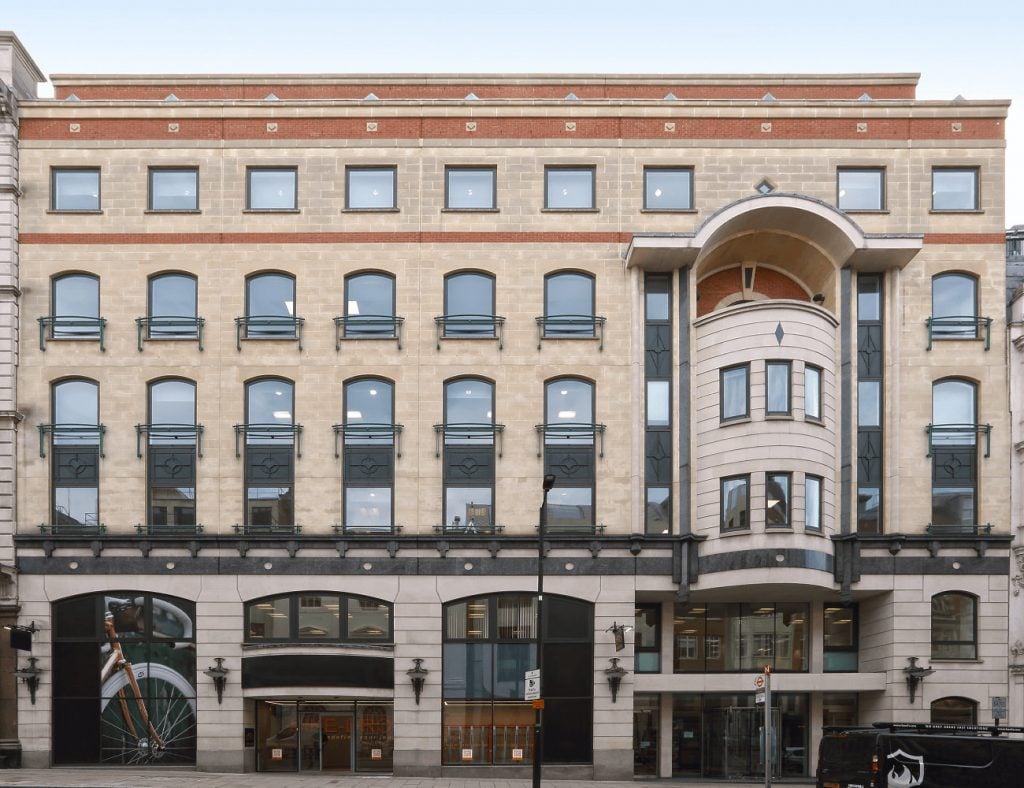
V.O Curations’s new location in Mayfair at 56 Conduit Street. Courtesy V.O Curations.
While there are reports that demand has slowed somewhat for real estate in London, V.O.’s presence in Mayfair—around the corner from such outfits as Sotheby’s and Pace—is quite a coup. The commercial building at 56 Conduit Street will launch in February with 50 studio spaces available for below-market rents of between £100 to £500 a month.
Crucially, the project aims to platform and foster underrepresented voices. The new gallery space will launch with a solo exhibition of works on paper by Lagos-born, London-based Richard Ayodeji Ikhide, whose illustrative practice blends references from his ancestral Yoruba heritage and English drawing traditions. Two other young artists, Motoko Ishibashi and Rhea Dillon, will inaugurate the new space as residents while they plan for shows later in the year.
Wong points out while many London residency programs are aimed towards out-of-towners over locals and aren’t particularly concerned with the realities of its own art scene, V.O. aims to address artists’ creative and professional needs while making an added effort of encompassing artists from diverse backgrounds. Borrowing from commercial models, the culminating residency shows will in some cases be selling exhibitions, where V.O. and the artist may share the sales revenue.
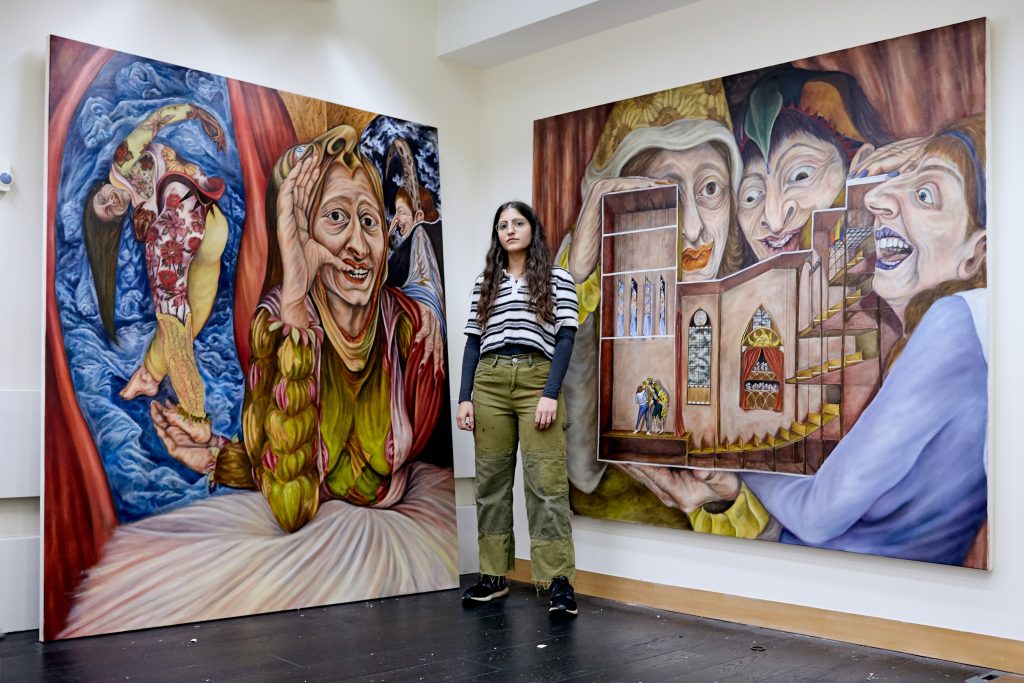
2019 residency artist, Nour El Saleh. Photo: Kevin Voller.
Prior to joining V.O, Wong worked as a Director at Sadie Coles HQ and Timothy Taylor. “After working in commercial galleries in central London it’s become apparent that the entry points for young artists and curators are few and far between. V.O is a project focused on local artists and practitioners who perhaps do not have access or visibility within this pocket of London’s art ecosystem.”
The studios, which will be open for applications soon, aren’t limited to visual artists. Publishers, fashion designers, and podcasters are also welcome. Curator Reem Shadid will inaugurate V.O.’s curatorial residency with a series of film screenings informed by research started during her time with the Sharjah Art Foundation.
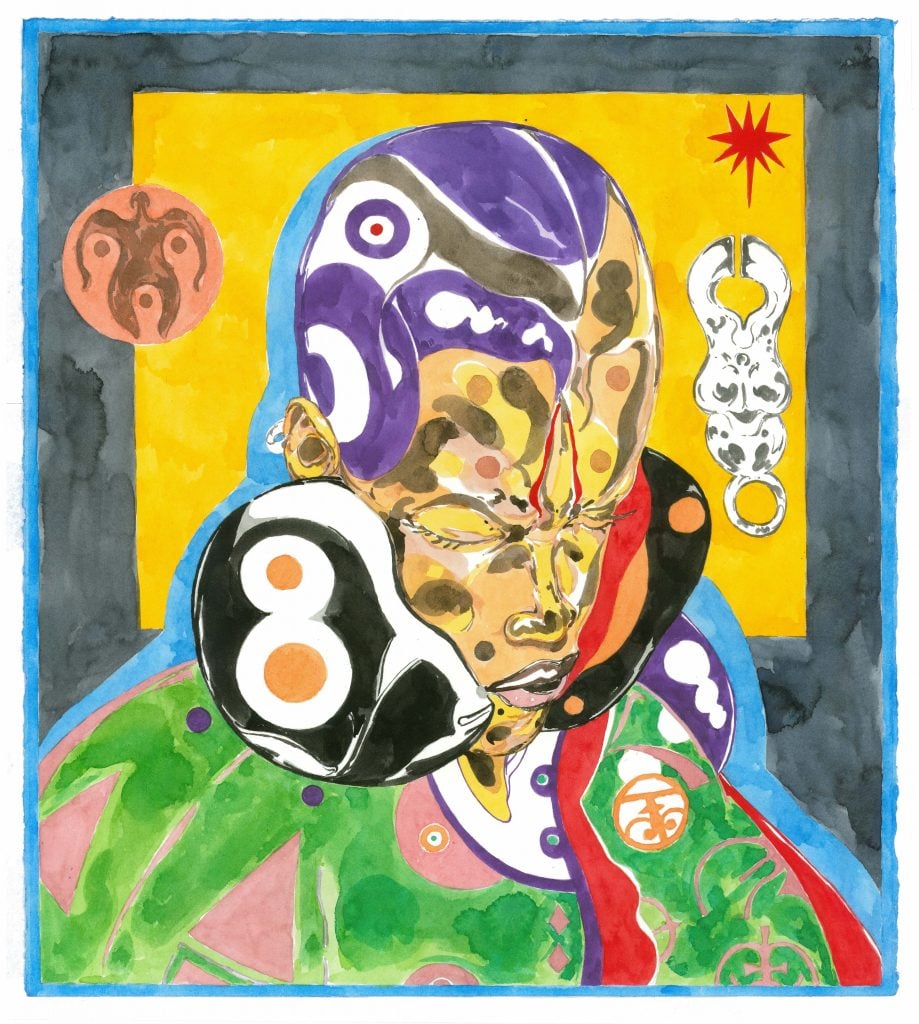
Richard Ayodeji Ikhide, SISUN (2020). Courtesy V.O. Curations and the artist.
Most critically, the aim of V.O. is to provide space, networks, and professional support to artists at the early stages of their careers—without the pressure that may come from gallery representation. “We see the issues with the commercial model and the art-fair cycle and how they impact artistic practice and the pressure that it puts on young artists,” Wong says. “We want to think about how we may interact with the global art world by focusing on who’s here in London.”
